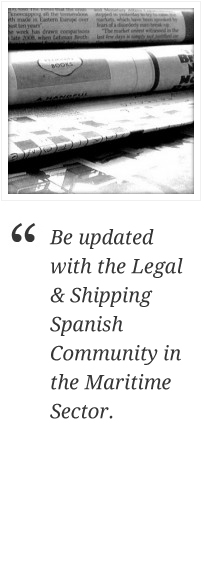December:CIRCULAR 5A/2000
NEW REGULATION OF THE CIVIL PROCEDURES IN SPAIN: PROVISIONAL ENFORCEMENT FOR ALL JUDGEMENTS.
On 9th January 2001 the new regulation of the Civil Procedures comes into force in Spain. The Regulation “Ley 1/2000 de 7 de enero, de Enjuiciamento Civil (LEC)†partially removes the previous regulation that has been existing for a hundred and twenty years. Some conflictual opinions and reactions have arisen about this new regulation which has been particularly criticised by almost all the law sectors: the Courts, Law Firms, Judges Associations, and generally all the political parties, including some of those that have contributed to its approval.
This new regulation will in fact have to be applied as from 9th January 2001 and the important points to be considered are the following:
- With the new regulation, the government wants to establish that about 80% of the law suits more frequently pursued (claims of a maximum amount of 5 million pesetas), could proceed more rapidly and without the formalities required now. This is through the creation of a new procedure, called monitorio, stating that when there is not an opponent party, the trial gets executed automatically. With this measure, the government hopes to reduce the volume of cases before the Courts of Justice and Tribunals. Despite this, it is possible that, as experienced in Italy, the amount of cases before the Courts will not be reduced, opponent parties will act and defend themselves, as a result of which this new special procedure will be abandoned and the usual procedures will continue to be adopted.
- The proceedings of the lawsuit will be simplified in two different ways: with a Juicio Verbal (Hearing) for claims up to 500,000 pesetas, and with a Juicio Ordinario for claims from 500,000 pesetas. In both procedures, all the proceedings (probative acts, allegations and conclusions), will be submitted to the Court verbally. This means that all the Courts will be provided with the adequate audio/tape recorders/CD material requested to follow up with those proceedings. The fact is that there is less than one month left in which to enter into this new system, and there is not any Tribunal or Court that has been provided with such audio measures.
- Once a First Instance judgement has been rendered, it will be possible to execute same without providing a guarantee. This means that once the claimant obtains in a First Instance Court judgement, he is entitled to have same executed (i.e. a payment) without providing a guarantee, contrary to what presently occurs. This measure implies the risk that the claimant may disappear (i.e. bankrupt or suspension of payments) in case the Supreme Court reverses the Appeal Court judgement.
It is important to note that as from the application of the new LEC on 9th January 2001, the claimant will be entitled to ask for the provisional enforcement for all judgements issued by the First Instance or Appeal Courts –even in proceedings started before the mentioned date- without supplying any guarantee. This measure will bring about that from the 9th January 2001 lots of judgements issued against Shipping Companies / Owners either in the First Instance Court or in the Appeal Court, or in Supreme Court, will be subject to enforcement as requested by the claimant. Therefore the P&I Clubs will face an important amount of cases where they will have to pay the amount claimed, otherwise they will be exposed to have the vessel arrested, this is, without presentation of any guarantee by the claimant.
- With this new regulation, the trials may well last two or even three times longer than the actual ones. This is because all the trials in the First Instance Court will be done on an oral basis, requiring always the presence of the Judge, and because the two previously mentioned new measures (monitorio process and execution of judgements) may not reduce the volume of work.
- In connection with the lien, the new LEC stipulates a faster procedure. Only the claim allegation will be necessary to arrest a vessel, same measure as regulated under the 1952 Brussels Convention. In this sense the regulation does not introduce any relevant change. Regarding the voluntary jurisdiction measures (such as judicial cargo surveys, deposit and sale of commodity to recover outstanding freights, nondurable goods, etc.), these are not regulated under the new LEC. The old LEC will continue to apply until a new regulation is approved to rule these measures.
- Finally, when a distraint order, there is the possibility to execute it through the Ships Agency or through the offices that the Shipowner may have in Spain.

